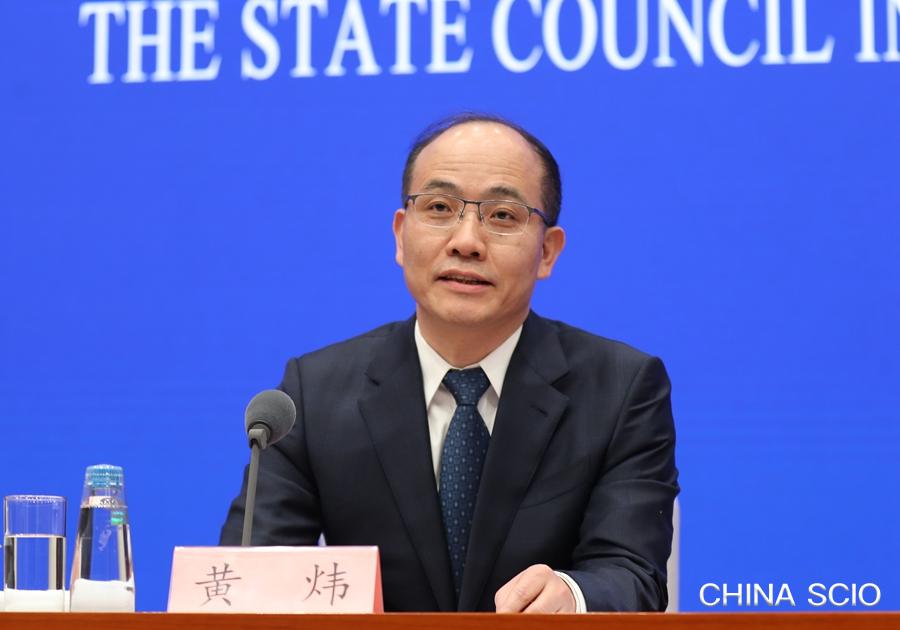Revised regulation to clarify responsibilities related to grain
A revised regulation on grain circulation management will take effect next Thursday, tightening the supervision of grain market activities and clarifying the responsibilities of related departments in the process of grain circulation, the National Food and Strategic Reserves Administration said on Thursday.
A revised regulation on grain circulation management will take effect next Thursday, tightening the supervision of grain market activities and clarifying the responsibilities of related departments in the process of grain circulation, the National Food and Strategic Reserves Administration said on Thursday.

Huang Wei, deputy-director of the National Food and Strategic Reserves Administration, speaks at a policy briefing in Beijing on April 8, 2021. [Photo by Liu Jian/China SCIO]
"The provincial Party chief and governor should be responsible for people's rice bowls and food security," Huang Wei, deputy director of the administration, said at a State Council Information Office news briefing.
The grain circulation management regulation was promulgated in 2004 and has been amended twice before, in 2013 and 2016. The latest revision makes it clear for the first time that the Party committees and governments of provinces, autonomous regions and municipalities should both be responsible for food security, Huang said.
Leaders of related departments who fail to fulfill their duties to supervise grain circulation will be disciplined in accordance with the law.
The new regulation stipulates the specific duties of the administration and other national authorities regarding development and reform, market regulation and health during the grain circulation process to prevent duplicated oversight or regulatory vacuums, Huang said.
It also urges regulators to crack down on illegal acts and effectively maintain order in grain circulation. The maximum fines for illegal acts involving grain bought by governments will be raised from 200,000 yuan ($30,528) to 5 million yuan, while those involving other grain purchases will increase from 200,000 yuan to 500,000 yuan.
"We will impose strict penalties on violations of grain quality. Anyone who breaches the prohibitions on sales of edible grain may face a fine of one to five times the value of the goods," Huang said.
Those who engage in food production and grain trade but fail to comply with food safety laws and standards should be punished in accordance with the law. The responsible personnel of enterprises that violate the new regulation will be fined up to 10 times the income they earned in the previous year, he added.
The revision focuses on the management of government-purchased grain, supervision of the grain market and reducing food waste.
Huang Yi, an official with the Ministry of Justice, said the revision aims to boost grain production, protect the rights and interests of operators and consumers, safeguard national food security and maintain orderly grain circulation.
It includes provisions to comprehensively regulate grain purchases, distribution, storage, transportation and processing, as well as food quality and safety, he added.
It also requires quality testing in grain procurement to ensure food safety. Enterprises engaged in grain storage should be equipped with standard facilities and transportation should strictly follow technical rules and reduce grain losses.

